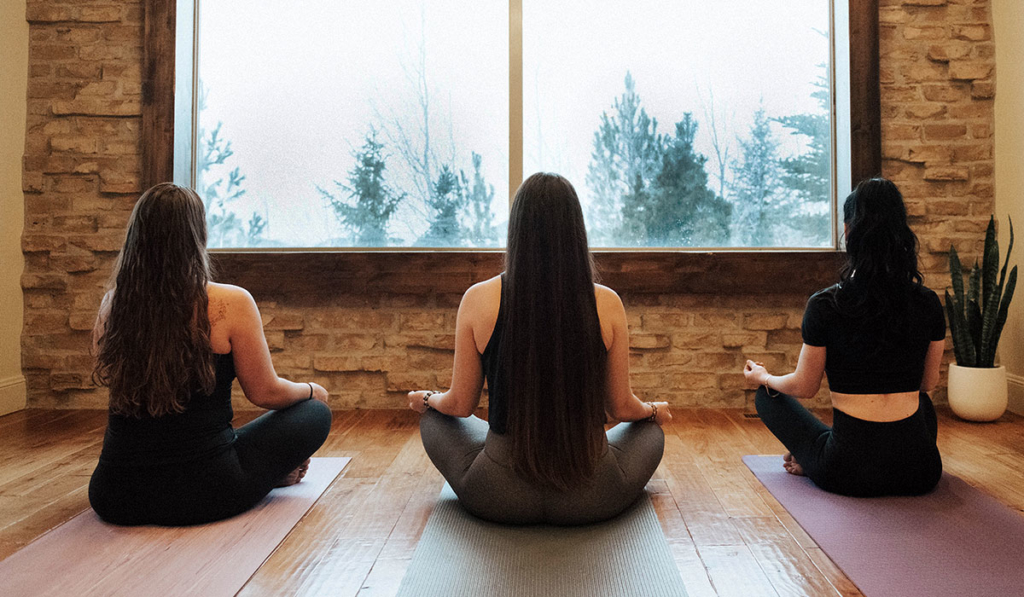
A couple weeks ago, I attended a seven-day silent meditation retreat at The Last Resort in Duck Creek, Utah. Due to COVID, it was my first retreat since the summer of 2019. In the previous six years, I’d been attending 18-day retreats at Spirit Rock Meditation Center every year. So while this retreat was a very welcome reset, it felt short, because it was. My body’s pattern is to feel exhausted for the first four to five days of a retreat. On a longer retreat I still have almost two weeks to enjoy the energy to go deeper. On this one, I would have two days at the most. This inspired a sense of urgency, a motivation to practice and to not squander my retreat time.
In my daily practice, it’s easy for the mind to slip into recounting our to-do list, cementing our plans for the day, week, month or more. In fact, that’s often the first place my mind goes. From there, I spend lots of energy continuing to pull my mind back to body and breath awareness. Still, there are days when a whole lot of my meditation time is spent organizing the day ahead. But I found that after my retreat, the motivation to practice, to take advantage of my mindful momentum from the retreat, has been stronger in my daily home practice. Being mindful is more compelling than my to-do list, at least for now.
3 Tips for Developing Motivation to Practice
This allowed me to reflect on why I practice, and how I can maintain this momentum. When I look at my motivation to practice, I’ve found that it’s really simple. I practice because after 33 years of meditation, I recognize the immeasurable value it has in my life. I don’t practice because some awful harm would befall me if I don’t. It’s not simply something I’ve added to my daily to-do list. It’s not a should. I trust the practice. I have faith in the practice. And it’s not blind faith, but a faith that’s been verified through decades of experience.
How do we develop motivation to practice? Whether our core practice is yoga or meditation, we often need to be reminded why we’re doing it. Here are some tips for staying on the path:
- Think of your practice as part of your morning ritual, a way to maintain the health of your body/mind. We don’t think twice about eating a decent breakfast, brushing our teeth, showering, etc. Yoga and meditation practices are they ways we bring equilibrium to our bodies and minds.
- When you set aside the time to practice, give it your full attention. You’ve got plenty of time to go over your to-do list, or to reflect on that difficult conversation you had with someone yesterday. You’ve got time to formulate your reply to that person—later. Use your practice time to invest your full awareness into what you feel in your body and mind, here and now. Your practice time is precious. It deserves your attention and care.
- Reflect on the value of your practice in your daily life. According to the yoga sutras, the benefit of asana practice is the cultivation of equanimity in the face of the ups and downs of our lives. This can apply to minute daily annoyances, or it can apply to major challenges and losses. The benefits can be subtle or obvious. What benefits have you experienced? Reflecting on this can remind you why you practice and can help you stay motivated.
Trust Your Yoga and Meditation Practices
Reflecting on the value of practice in your life can be tricky. While there are benefits you can feel right away when you practice yoga and meditation, some of the deeper benefits are subtle. This is where reflecting on the millennia-long history of these practices can be helpful. Yoga and meditation have survived for thousands of years. They’ve survived because millions of people have reaped their benefits. So even if you’re just starting out, and the benefits you experience are on the subtler side, trust the process. Approach your practice with an open, curious mind. Reflect on why you love your practice. Then grab your meditation cushion or your yoga mat, open your mind and see where your practice takes you today.
